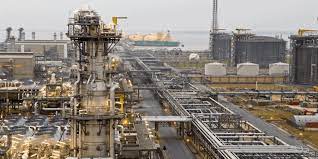Oil & Energy
Content Policy Saves $2bn In NLNG Train 7

Nigeria was saved the sum of $2 billion dollars from the ongoing Train 7 of the Nigeria liquefied Natural Gas (NLNG) project as a result of using Nigerian firms, says the Executive Secretary, Nigerian Content Development and Monitoring Board (NCDMB), Mr Simbi Wabote
Wabote, stated this last Friday, shortly after receiving the award of African Local Content Icon, from the African Leadership magazine, in Yenagoa.
The NCDMB Executive Secretary, who dismissed the assertion that the Nigerian content policy was costly, and a ploy by foreign interests who do not wish the country to develop, described the claim as blackmail, because experience had shown that the policy was more cost effective for oil firms.
“The Nigerian content policy saves costs, from the projects that the NCDMB have supervised it is clear that it is better for the International Operating Companies in Nigeria, but foreign interests at global levels erroneously say that local content is expensive.
“Before the move to increase the participation of Nigerians in the oil and gas sector, the participation was at about three per cent and previous administrations relied mostly on taxes and revenue and lost sight of the opportunities for Nigerians to get involved in the sector.
“From the oil sector where I am coming from, it is five times more expensive to pay an expatriate than a Nigerian, so how can they say that local content is more expensive ?
“ On the Train 7 project if you look at the cost provided by foreign companies, you have a wide gap of about $ 2 billion from the quotations of the lowest submitted by foreign firms and the highest from Nigerian companies, so local content is better as we ensured that quality was not compromised.
“From 2010 till now, we have come a long way, for instance NLNG had 90 per cent of the workforce as expatriates, but today 90 per cent of the workers are Nigerians with some even occupying top positions in foreign oil firms.
“I am thankful to President Muhamadu Buhari, who gave me the opportunity to practice local content in the public sector, by appointing me in 2016 and reappointing me in 2020,” Wabote said.
On the African Local Content Icon Award bestowed on him, Wabote said that it came to him as a ‘pleasant surprise’ adding that the ideals of the African Leadership Magazine justified his decision to accept the award.
Speaking earlier, the Managing Editor of the African Leadership Magazine, Mr Kingsley Okeke, noted that the process leading to the selection was transparent and independently conducted with nominations received from across the African continent.
“We found in the accomplishment and achievements of the Executive Secretary of the NCDM, a worthy character we must encourage and export to the rest of Africa.
“Our focus at the magazine is to spotlight the positive developments in the African continent and change the narrative and stereotypes by western media,” he said.
The Tide source reports that the African Local Content Icon Award was presented by Mrs Laura Hall, President-elect of the National Black Caucus in the U.S congress, at the headquarters of the NCDMB in Yenagoa.
Hall said that blacks in the United States, represented by the Black Caucus, also have a similar challenge with building local capacity to compete with their white counterparts in executing contracts in the U.S.
She said the caucus would collaborate and share ideas with the NCDMB on ways to increase the capacities of blacks in the U.S.
Oil & Energy
MIND Slams PENGASSAN, Urges Senate Probe Over Alleged Maltreatment Of Nigerians At TotalEnergies

Oil & Energy
Elumelu Tasks FG On Power Sector Debt Payment

Oil & Energy
‘Over 86 Million Nigerians Without Electricity’

-

 Sports4 days ago
Sports4 days ago2026 WC: Nigeria, DR Congo Awaits FIFA Verdict Today
-
Politics4 days ago
ADC, PDP, LP Missing As INEC Set For By- Elections In Rivers
-

 Environment4 days ago
Environment4 days agoOxfam, partners celebrate 5 years of climate governance programmes in Nigeria
-
Politics4 days ago
FG’s Economic Policies Not Working – APC Chieftain
-

 Politics4 days ago
Politics4 days ago2027: Diri Unveils RHA LG Coordinators, APC Congress Panel
-

 Politics4 days ago
Politics4 days agoReps To Meet,’Morrow Over INEC’s 2027 Election Timetable
-

 Politics4 days ago
Politics4 days agoGroup Continues Push For Real Time Election Results Transmission
-
Sports4 days ago
Sunderland Overcome Oxford Challenge

